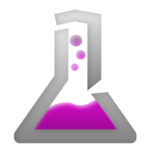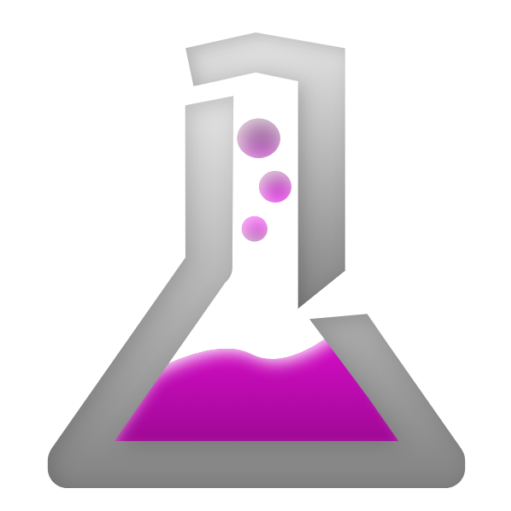Cybersecurity Vulnerabilities in Climate-Critical Infrastructure
High-Level Overview: Increasing digitization of climate monitoring and energy transition systems has exposed critical weaknesses in environmental infrastructure cybersecurity. Networks managing power grids, weather sensors, and emissions data face rising risks of targeted attacks that could disrupt climate response efforts or falsify vital ecological datasets.
Key Points:
- Sensor Network Exploits: Outdated IoT devices in remote environmental monitoring stations lack encryption, enabling data manipulation.
- Grid Vulnerability Escalation: Renewable energy systems integrated with legacy grid tech create complex attack surfaces for ransomware operators.
- AI Model Poisoning Threats: Climate prediction algorithms trained on compromised datasets could produce misleading projections.
Why It Matters❗: Successful cyberattacks on climate infrastructure could derail global decarbonization timelines, amplify physical climate disasters through system interference, and erode public confidence in environmental science during a critical geopolitical window for climate action.
The Growing Role of Programming in Cybersecurity Consulting
High-Level Overview: Modern cybersecurity consulting increasingly demands programming expertise to automate tasks, analyze vulnerabilities, and build custom tools. Consultants with coding skills can streamline threat detection, simulate attacks, and integrate security protocols into software development pipelines, offering clients faster and more scalable solutions than traditional manual methods.
Key Points:
- Automation Advantage: Scripting accelerates repetitive processes like log analysis or compliance checks, freeing consultants for strategic work.
- Custom Tool Development: Tailored scripts or applications address unique client needs where off-the-shelf software falls short.
- Cross-Discipline Collaboration: Programmer-consultants bridge communication gaps between technical teams and executive stakeholders.
Why It Matters❗: As cyberattacks grow in complexity, consultants who combine security expertise with programming capabilities deliver more proactive and adaptive defenses. This dual skillset is becoming critical for implementing DevSecOps practices and maintaining robust protection in fast-evolving digital environments.
Cybersecurity Startup Starship Emerges with Major Funding from AI Veterans
High-Level Overview: A new cybersecurity startup, Starship, founded by former Google DeepMind and Airbus AI experts, has secured significant funding to develop advanced AI-driven security solutions. The company aims to address growing cyberthreats by leveraging machine learning and autonomous systems to detect and neutralize attacks in real time, focusing on industries like critical infrastructure and enterprise networks.
Key Points:
- Elite Founding Team: Starship’s leadership includes veterans from Google’s DeepMind and Airbus’s AI divisions, bringing expertise in large-scale AI systems and defense applications.
- Strategic Funding: Backed by undisclosed major investors, the startup’s funding round highlights strong confidence in its mission to revolutionize cybersecurity through automation.
- AI-Powered Defense: The platform prioritizes proactive threat detection and response, using self-learning algorithms to adapt to evolving attack methods without human intervention.
Why It Matters❗: As cyberattacks grow in complexity and frequency, traditional defense mechanisms struggle to keep pace. Starship’s focus on autonomous AI solutions could redefine how organizations preempt and mitigate risks, particularly for high-value targets like energy grids and financial systems.
Logverz Launches Limited-Time Initiative for Streamlined Log Management
High-Level Overview: Logverz, a lightweight log management and analytics platform, is offering a time-bound opportunity for five organizations to implement its solution in May 2024. Aimed at cloud, DevOps, and security teams, the initiative promises rapid deployment, cost reductions, and enhanced operational insights through simplified log data integration. Participants gain access to enterprise-tier tools and training with minimal upfront effort.
Key Points:
- Accelerated Implementation: Selected teams receive a fully operational Logverz setup within 8 hours, including a 3-year enterprise license and practitioner certification.
- Cost Efficiency: Potential 90% reduction in infrastructure and tooling costs through optimized log management workflows.
- AI-Ready Analytics: Enables instant system insights, self-service reporting, and continuous monitoring for two critical systems with expert support.
- Strategic Advantages: Early access to emerging technology, internal visibility boosts, and cloud optimization skill development for participating teams.
Why It Matters❗: As organizations grapple with escalating data complexity and budget constraints, solutions like Logverz address critical needs for cost-effective, agile log analysis. The initiative provides a low-risk pathway to modernize operations while positioning teams to leverage AI-driven insights – a strategic advantage in competitive tech landscapes.
Roku’s Ad-Driven Strategy and Apple’s Privacy-Centric Approach
High-Level Overview: Roku has solidified its position in the streaming market by prioritizing ad-supported content and partnerships, leveraging user engagement to drive advertising revenue. In contrast, Apple continues to emphasize privacy-focused features that limit data collection, creating tension between monetization strategies and consumer privacy expectations in the tech industry.
Key Points:
- Roku’s Ad Revenue Growth: Roku’s business model relies heavily on advertising partnerships and expanding its ad-supported content library, enabling rapid growth in a competitive streaming landscape.
- User Data Utilization: The platform’s success depends on collecting viewer behavior data to deliver targeted ads, raising concerns about transparency and data privacy practices.
- Apple’s Privacy Measures: Apple maintains a privacy-first stance with features like App Tracking Transparency, which restricts third-party data harvesting, impacting ad-driven revenue models across the ecosystem.
Why It Matters❗: The divergence between Roku’s ad-centric approach and Apple’s privacy protections highlights a critical industry debate: balancing profitability with user trust. As data privacy regulations evolve, companies face increasing pressure to align their strategies with consumer expectations and regulatory requirements.






2 Comments
I do not even know how I ended up here but I thought this post was great I dont know who you are but definitely youre going to a famous blogger if you arent already Cheers
I do not even understand how I ended up here, but I assumed this publish used to be great